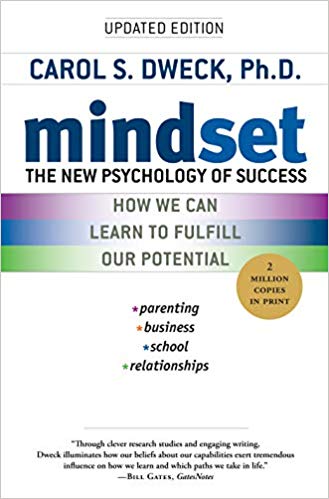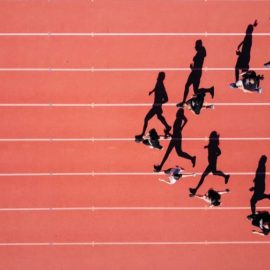

This article is an excerpt from the Shortform summary of "Mindset" by Carol Dweck. Shortform has the world's best summaries of books you should be reading.
Like this article? Sign up for a free trial here .
How to deal with failure is a crucial lesson, but we’re not always taught the most productive or effective ways. Mindset drives how people define and cope with failure. For people with a fixed mindset, failure is an identity that they fear and try to avoid, rather than something that happens.
To learn how to deal with failure, you need to change your mindset. We’ll cover Carol Dweck’s advice for dealing with failure.
Dealing with Failure
For example, as a child, the author refused to participate in spelling and French competitions, although she excelled at those subjects, because she was afraid of losing and being defined as a failure. Golfer Ernie Els felt the same way. When he won a tournament for the first time in five years, he explained what had been at stake: he said that if he had lost again, he’d have become a different person in his mind — a permanent loser. Similarly, every spring, thousands of young people feel they’re failures when they get rejection letters from their top choices for college. Every day, we have to learn how to deal with failure. Further, we have to understand how to learn from failure.
Failure is hard for growth-minded people too, but they don’t let it define them. This is the most effective way of dealing with failure. They see it as something to confront and learn from. For example, Minnesota Viking Jim Marshall didn’t let a spectacular failure define him. He grabbed a loose ball and ran into the wrong end zone, scoring for the opposing team, the 49ers, on national television. Rather than sitting out the rest of the game and feeling ashamed, he went back in and played well during the second half, contributing to a win for his team. After the game, he continued to use the experience in a positive way, answering letters and speaking to groups about coping with failure, while he also worked to improve as a player. This is a great lesson in how to overcome failure.
In contrast, dealing with failure with a fixed mindset doesn’t give you any constructive way to overcome it. When you’re a failure, then what? Some of the negative ways people with a fixed mindset try to shore up their self-esteem include giving up, cheating, and blaming. This is not how to deal with failure.
Researchers asked seventh graders how they’d respond to a poor grade on a test in a new course. Predictably, the growth-minded students said they’d study harder for the next one. But the fixed-mindset students said they’d study less — because what’s the point if you lack the ability? Instead, they said they’d consider cheating. Clearly, how you cope with failure affects your future success.
Sometimes, people with fixed mindsets try to make themselves feel better by focusing on others who are worse off. In a college study, researchers allowed students who did poorly on a test to look at others’ tests. Those with a growth mindset looked at the tests of others who’d done better because they were looking for ways to improve. Students with a fixed mindset looked at the tests of those who’d done worse in order to feel better about themselves. Again, the best way to deal with failure is to learn from failure.
Alternatively, people with fixed mindsets may blame others or make excuses. Every time he lost a match, John McEnroe had an excuse — he had a backache, he overtrained, he ate before the match, or he was a victim of unfair expectations. In contrast, when growth-minded CEO of General Electric Jack Welch made poor decisions leading to poor results, he personally phoned top colleagues to deliver the news and take the blame.
As UCLA basketball coach John Wooden noted, you can’t learn from your failures if you deny them by blaming someone else. This is not how to cope with failure.
Coping with Failure and Depression
Mindset also plays a role in how people handle depression. In a study of college students, those with a fixed mindset had worse depression than those with a growth mindset. The fixed-mindset students obsessed over problems and failures, which made them feel worthless. The more depressed they felt, the more paralyzed they became — they didn’t do anything to address their problems, such as doing class assignments or studying. In contrast, the more depressed that growth-minded students felt, the more determined they were to take action. They tried harder to keep up with their classwork and obligations. Learning how to deal with failure is imperative in coping with depression.
How do you handle failure? Dealing with failure is difficult for everybody, but learning how to learn from failure is the best strategy for mental wellbeing and future success.
———End of Preview———

Like what you just read? Read the rest of the world's best summary of "Mindset" at Shortform . Learn the book's critical concepts in 20 minutes or less .
Here's what you'll find in our full Mindset summary :
- The difference between a growth and a fixed mindset
- How a fixed mindset keeps you back throughout your life: education, relationships, and career
- The 7 key ways to build a growth mindset for yourself






